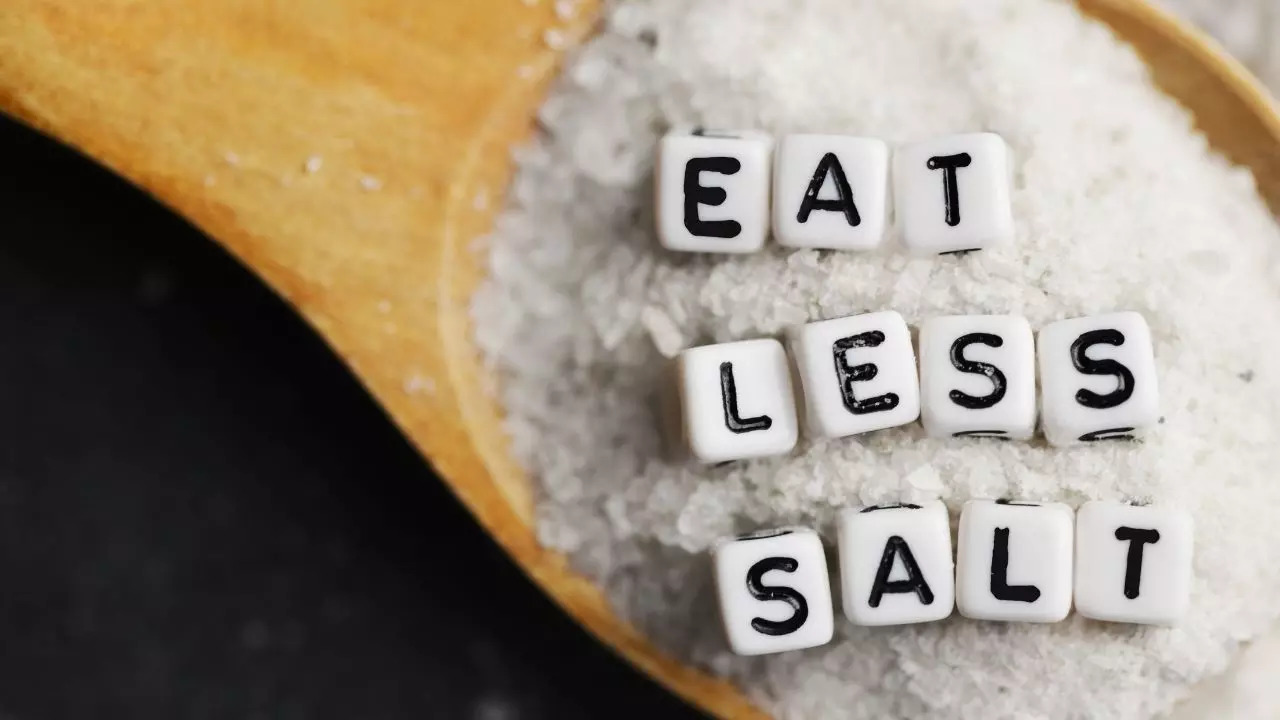Contents
FDA sets new target to reduce sodium content in packaged foods by 20 percent; Know how a high-salt diet affects your healthWhat happens when you eat a high salt diet?Increased blood pressurePressure on the kidneysexcess fluid in the bodyLoss of calciumstomach problemsImpaired vascular functionEffects on gut microbiotaincreased thirst and risk of dehydration
FDA sets new target to reduce sodium content in packaged foods by 20 percent; Know how a high-salt diet affects your health
The FDA said its goal is to reduce sodium levels in packaged and processed foods by about 20%. The FDA is now seeking voluntary restrictions from packaged food manufacturers. The agency wants to cut sodium intake by half over the next three years. Read on to learn how a high-salt diet affects your health.

FDA sets new goal to reduce sodium in packaged foods by 20 percent
Food and Drug Administration (FDA) said it aims to reduce sodium levels in packaged and processed foods by about 20%. Earlier, in October 2021, the FDA set guidelines to reduce sodium levels in foods ranging from potato chips to hamburgers to prevent excessive salt intake that can trigger high blood pressure, a major risk factor for heart disease and stroke.
The FDA is now seeking voluntary bans from packaged-food makers such as PepsiCo, Kraft Heinz and Campbell Soup. The FDA wants to reduce sodium intake to an average of 2,750 milligrams per day over the next three years — a 20% drop from pre-2021 levels, though still above the recommended daily limit of 2,300 milligrams.
“Reducing sodium in the food supply has the potential to be one of the most important public health initiatives in this generation,” Jim Jones, the FDA’s deputy commissioner for human foods, said in a statement. The agency said it has seen 40% of food categories achieving Phase 1 sodium goals, averaging reductions of about 12%, or are within 10% of meeting those goals.
What happens when you eat a high salt diet?
Increased blood pressure
High salt intake causes water retention, which increases blood volume and consequently blood pressure. Over time, increased blood pressure can increase pressure on the cardiovascular system, increasing the risk of heart disease and stroke.
Pressure on the kidneys
The kidneys filter excess sodium from the blood. A high-salt diet forces them to work harder, reducing their efficiency. Over time, this can lead to kidney disease or make an existing condition worse.
excess fluid in the body
Sodium causes the body to retain water, leading to swelling in the feet, hands, and other parts of the body. This condition is also known as edema and can be uncomfortable. It can also be a sign of underlying heart or kidney problems.
Loss of calcium
Excessive sodium can cause the body to excrete calcium through urine. This depletes calcium stores in the bones, increasing the risk of osteoporosis. This is a condition in which bones become brittle and more likely to fracture.
stomach problems
High salt intake can also increase the risk of stomach cancer. Sodium can damage the stomach lining and increase the production of compounds called nitrosamines which are thought to be carcinogenic.
Impaired vascular function
Excess sodium can damage the lining of blood vessels, affecting their ability to dilate and contract. This damage leads to the development of atherosclerosis in which the arteries become narrow and hardened.
Effects on gut microbiota
A high-salt diet can affect the balance of gut bacteria, promoting the growth of harmful bacteria and reducing good bacteria. This imbalance can lead to inflammation and increase the risk of chronic diseases.
increased thirst and risk of dehydration
High levels of salt in the body increase thirst as the body tries to dilute the excess sodium. If you don’t drink enough water it can lead to dehydration as the kidneys work overtime to remove the excess salt.
(with inputs from agencies)
Get the latest news on Times Now along with the latest updates and top headlines from health and around the world.


